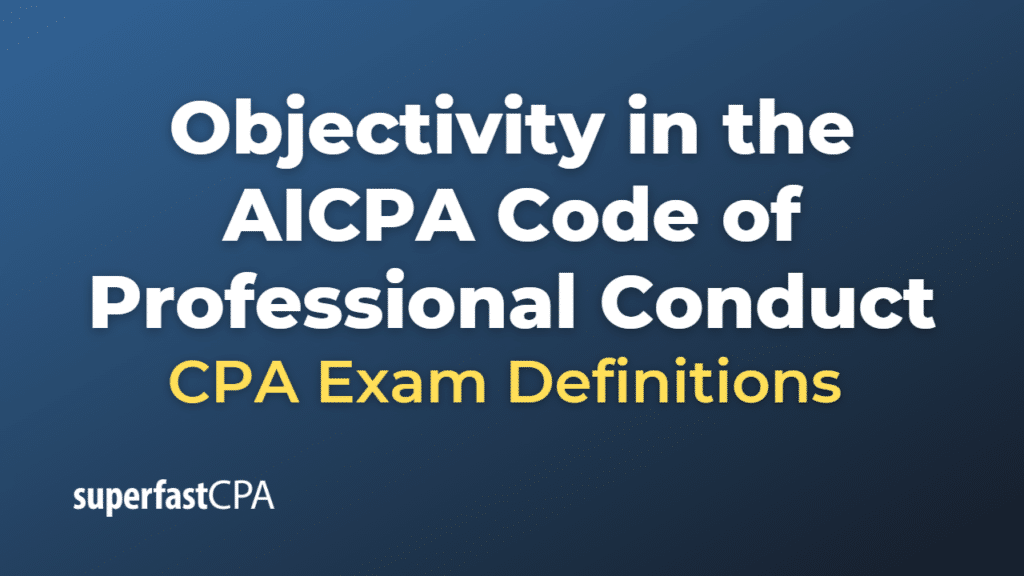Objectivity in the AICPA Code of Professional Conduct
Objectivity is one of the fundamental principles in the AICPA (American Institute of Certified Public Accountants) Code of Professional Conduct. It requires accounting professionals to maintain an impartial and unbiased attitude when performing their professional responsibilities, and to avoid any conflicts of interest or undue influence that could compromise their professional judgment or the quality of their work.
The principle of objectivity is applicable to all members of the AICPA, whether they are in public practice, working in industry, academia, or other roles. It is essential in promoting trust and credibility in the accounting profession, as well as in providing reliable financial information and assurance services.
To uphold the principle of objectivity, AICPA members should:
- Make professional judgments based on relevant facts and circumstances, free from personal bias or external pressures.
- Avoid situations, relationships, or activities that could create a conflict of interest or compromise their professional judgment.
- Be transparent and honest when communicating with clients, employers, colleagues, regulators, and other stakeholders.
- Disclose any potential threats to objectivity and apply appropriate safeguards to eliminate or mitigate such threats.
The AICPA Code of Professional Conduct provides a conceptual framework approach to help members identify, evaluate, and address threats to objectivity, and to apply appropriate safeguards to ensure compliance with the principle. It also includes specific rules and guidelines related to independence, confidentiality, and other aspects of professional conduct that support the principle of objectivity.













